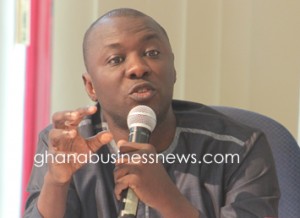Ghana government asked to allocate more oil revenue to education

The Africa Centre for Energy Policy (ACEP), has called on government to allocate enough money from the oil revenue to education to ensure national development.
The Centre said education plays a key role in nation building and that financing the venture would help address challenges of socio-economic disparities in access and quality of education, and regional difference in infrastructure and teacher distribution.
Mr Ben Boakye, Deputy Executive Director of ACEP, made the call at a regional consultative forum in Accra on the theme: “Repositioning Education Financing on goods and services and assets through increased Annual Budget Funding Amount (ABFA) funding and Disbursement for education sector.”
The forum, sponsored by Education for Development, a non-governmental organisation would collate views from stakeholders and present it to government as a guide to develop 2016 budget.
He said government in 2014, budgeted GH₡ 5.8 billion on education, made up of tax revenues, ABFA, internally generated fund and donor financing.
Mr Boakye noted that, out of the total budget for the education sector, government spend GH¢4.38 billion on wages and salaries (75 per cent), GH¢1.15 billion on goods and services (20 per cent) and GH¢276,068,885 on capital expenditure (five per cent).
He said although petroleum revenues are not significant in the overall education budget, it constitutes an important component of the capital budget and could directly affect the development of the education sector especially in area of infrastructure.
He said the ABFA is the least of the revenue sources for the education sector budget; hence the contribution of petroleum revenues in financing education is insignificant in nominal terms which are about two per cent of the total education budget.
Mr Boakye said out of the total capital budget of GH¢276 million, GH¢220 million is allocated to three programmes, including general administration, specialised education support and pre-tertiary education management.
He said the money allocated to the educational sector is not adequate and that government must increase it in the 2016 budget because schooling is associated with high social and economic returns.
He explained that there is the need for government to prioritise education because the sector contributes to short and long-term development.
Mr Boakye cited Trinidad and Tobago as a country that spends the bulk of its oil revenue on education and is yielding good returns while Brazil passed a law which allows 70 per cent of its royalties to finance education.
Source: GNA
